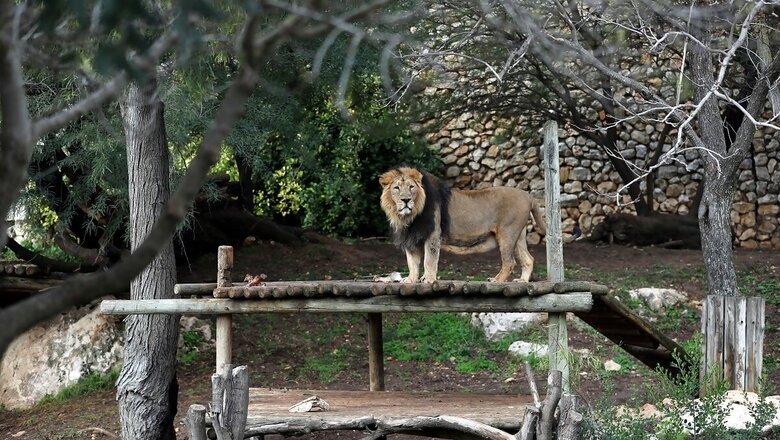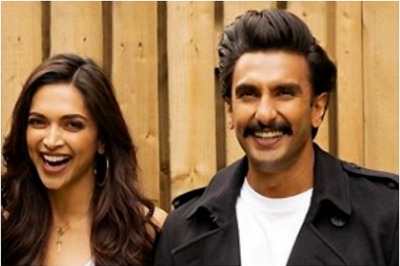
views
After eight Asiatic lions tested positive for coronavirus at the Nehru Zoological Park in Hyderabad, making it the first case of animals contracting COVID-19 in India, questions have been raised again about the spread of the virus among animals.
Can pets have COVID? What is the course of treatment and testing for animals? And, how susceptible are zoo animals and free-ranging animals to this virus that has already taken a toll on humanity?
As far as the lions are concerned, they were tested by the same RT-PCR test used to identify COVID-19 in humans. It was done by taking their nasal and throat samples (oropharyngeal swab). The test was conducted by the Centre for Cellular and Molecular Biology in Hyderabad after zoo authorities noticed that a pack of lions are showing signs of dry cough, nasal discharge and loss of appetite.
“If animal-to-animal transmission does happen, it is likely to affect zoo animals far more than free-ranging animals. Outside animals don’t live in the kind of density zoo animals reside in,” pointed out CCMB Advisor, Dr Rakesh Mishra.
Mishra also added that the chances of human-to-animal transmission could not be ruled out at this point either, which is why the spread of COVID in animals needs to be studied more deeply.
“So far, we have tested cats and found them to be negative. But large-scale surveillance needs to be done there too. If they can contract COVID, and that goes unnoticed, then they can not only fall sick but also become a reservoir for virus mutation and give us back a more mutated version of COVID, which can be dangerous. That is how pandemics happen. So, it is very important to monitor animals,” he added.
Mishra explained that currently they are working on developing method to test the viral load in faecal samples of animals, which will make it easier to monitor animals for COVID, because collecting nasal samples is not always possible from wild animals.
Dr Vinod Dhoot, Deputy Director, Wildlife Research And Training Centre, Gorewada Nagpur told News18, “Once an animal has been detected positive, precautionary measures have to be taken by the respective zoo authorities. They will have to quarantine the animal, the movement of that animal has to be restricted because that is the only way to contain the spread, if there is an animal-to-animal transmission, which cannot be ruled out at this point.”
However, to avoid human-to-animal transmission is also necessary, which is why, the Union Environment Ministry has already directed that all national parks and sanctuaries will remain closed for now.
Dr Dhoot pointed out that the treatment of animals effected by COVID-19 will be similar to that of humans. “The antibiotics, antiviral, immune boosters, multivitamins will help in treating COVID-19 in animals as well. But using antiviral or anti-inflammatory medicines depends on the severity of the infection,” he added.
Dhoot pointed out that in zoos, animals are generally given nutritious food. They are regularly getting multivitamins and zinc too. There is no immunosuppression because they are getting balanced nutrition. Therefore, if proper tracking is done, then most zoos will be able to contain any chances of outbreak.
Dr Vipin Sharma, Veterinarian, Pet Planet Dog & Cat Clinic at Gulmohar Park, New Delhi told News18, “Covid-19 virus doesn’t effects dogs and cats due to their innate and acquired immunity. The virus might enter into the tissues of dogs but cellular immunity doesn’t allow virus to multiply. So, dogs and cats are safe from human COVID-19 virus.”
Most animals including humans already have many types of Enteric Corona Virus, which are generally harmless due to local immunity of Gastro-Intestinal System. Covid-19 virus, however, is attacking respiratory, Vascular & other systems of the body which are not trained to handle it and causing severe symptoms due to its mutation. Thankfully, we have not seen this happen in smaller animals so far, ” he added.
For Enteric coronavirus, in both cats and dogs, vaccines have already been devised. However, currently, there are no vaccines available to protect animals from Covid-19. Russia reportedly has started mass production of what is being called the world’s first anti-covid vaccine for animals named ‘Carnivac-Cov’.
The first batch of nearly 20,000 doses of Carnivac-cov will be given to Russian farm owners for their animals.
Read all the Latest News, Breaking News and Coronavirus News here. Follow us on Facebook, Twitter and Telegram.




















Comments
0 comment